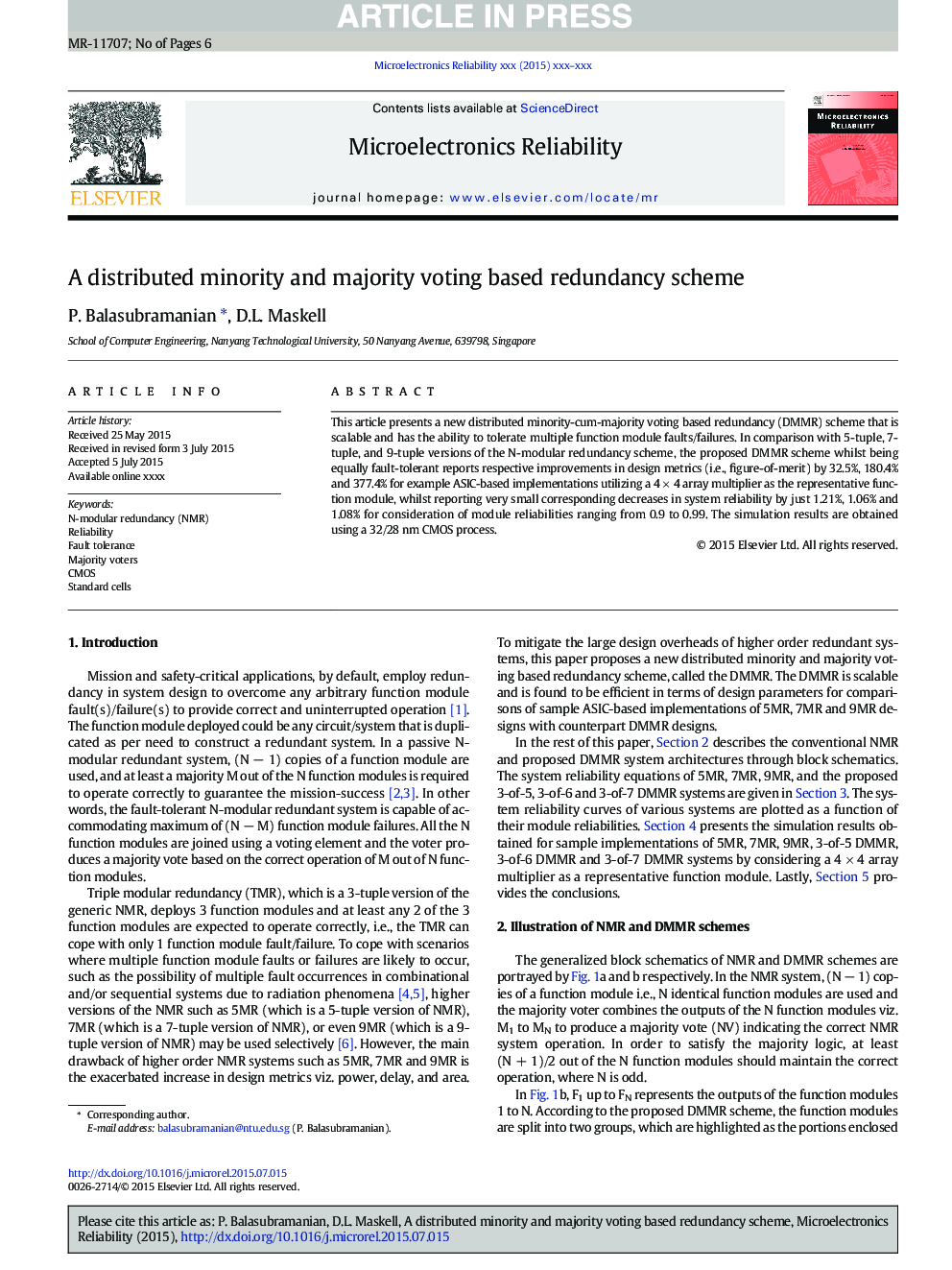| Article ID | Journal | Published Year | Pages | File Type |
|---|---|---|---|---|
| 6946503 | Microelectronics Reliability | 2015 | 6 Pages |
Abstract
This article presents a new distributed minority-cum-majority voting based redundancy (DMMR) scheme that is scalable and has the ability to tolerate multiple function module faults/failures. In comparison with 5-tuple, 7-tuple, and 9-tuple versions of the N-modular redundancy scheme, the proposed DMMR scheme whilst being equally fault-tolerant reports respective improvements in design metrics (i.e., figure-of-merit) by 32.5%, 180.4% and 377.4% for example ASIC-based implementations utilizing a 4Â ÃÂ 4 array multiplier as the representative function module, whilst reporting very small corresponding decreases in system reliability by just 1.21%, 1.06% and 1.08% for consideration of module reliabilities ranging from 0.9 to 0.99. The simulation results are obtained using a 32/28Â nm CMOS process.
Related Topics
Physical Sciences and Engineering
Computer Science
Hardware and Architecture
Authors
P. Balasubramanian, D.L. Maskell,
